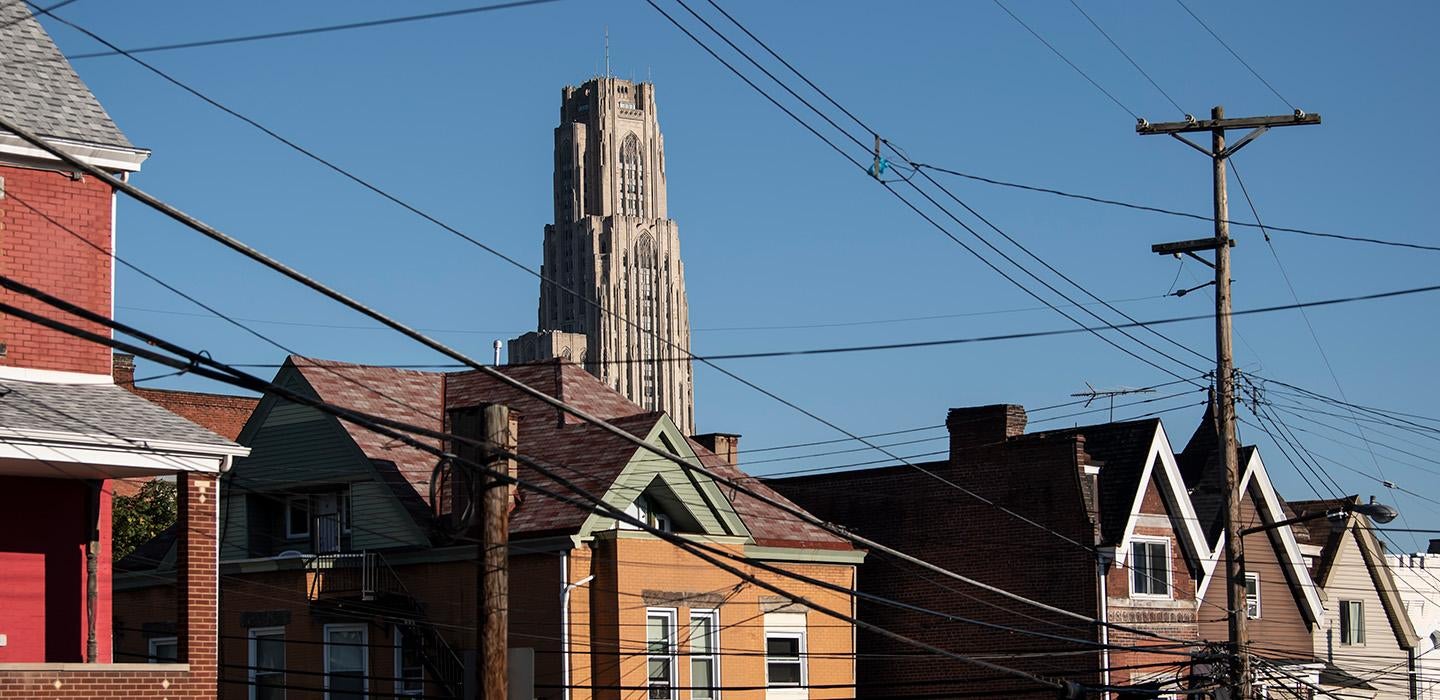
Subscribe to Pittwire Today
Get the most interesting and important stories from the University of Pittsburgh.For decades, the University of Pittsburgh’s Cathedral of Learning has stood tall as a symbol of high ideals and lofty educational achievement.
Its influence is about to become even stronger: A pilot program, led by a coalition of higher ed, nonprofit and school district partners, is turning the 42-story Pittsburgh landmark itself into a site for a new community wireless network — one that aims to provide families with school-age children more equitable access to the internet.
With the addition of an antenna array on its uppermost roof, 535 feet above the ground, the Cathedral of Learning will be the network’s hub that will transmit the signal to receptors installed in communities within its view.
Through Every1online, a first-of-its kind partnership involving a nonprofit wireless internet service provider and academic organizations, Pitt joined Carnegie Mellon University, Meta Mesh Wireless Communities and the Keystone Initiative for Network-based Research (KINBER) to bring high-speed internet access to Pittsburgh families in need.
At a time when the COVID-19 pandemic has shifted classroom instruction online, the pilot program seeks to bridge the region’s digital divide. With support from the Hopper Dean Foundation and the RK Mellon Foundation, Every1online will provide 12 months of free residential WiFi to eligible households in the Coraopolis, Homewood and New Kensington areas.
“This partnership will no doubt have a meaningful impact on bridging the digital divide in communities that are literally within view of the iconic Cathedral of Learning. We’re grateful for the opportunity to contribute to improving educational outcomes in these school districts, and the resulting long-term benefits for the region,” said Mark Henderson, Pitt’s vice chancellor and chief information officer.
While the pilot program seeks to prioritize households with students, any household within the service area can sign up to receive in-home equipment and connect to the network.
"Pitt strives to be a responsive partner, so we were quick to help advance this project in any way we could,” said Lina Dostilio, Pitt’s associate vice chancellor for community engagement. “Addressing the digital divide is critical and this project is aligned with our other efforts through Beyond the Laptops and Hill Community Engagement Center Digital Literacy Programming.”
“This wireless network will help build a foundation for the community’s future by providing our school-age neighbors the basic tools they need for accessing a 21st century education. Following the pilot, we hope to build on this project with the support of additional partners in order to extend these resources to additional communities where there is need,” she said.
“The pandemic has really highlighted that internet is really not a luxury, it is a basic necessity,” said Walter Lewis, president and CEO of Homewood Children’s Village, a community organization partner.
“Every1online will change so much in our community. … It’s a chance for greater equity,” he said. “It takes collaboration for these things to come together, none of us can do it all on our own. Knowing that there’s different partners coming together gives a greater sense of stability and security — it helps to anchor these initiatives and ensure that partners bring their core strengths to the table.”


